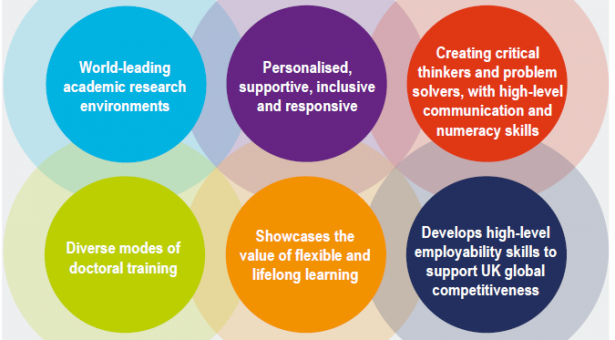About the Programme

The Norwich Research Park Biosciences Doctoral Training Partnership is a PhD programme involving the John Innes Centre, Earlham Institute, Quadram Institute Bioscience, The Sainsbury Laboratory and University of East Anglia.
It is a particularly exciting time to set out on a career in biosciences research. The global challenges of the 21st century are enormous, and advances in the biosciences offer real opportunities to address topics such as sustainable agriculture and food, renewable resources and clean growth and an improvement of human and animal health across the life course.
The NRPDTP is unique in bringing together the resources of five world-class research institutions on a single site – the Norwich Research Park. Consequently, doctoral candidates joining our DTP will have the opportunity, within a single programme, to pursue multidisciplinary research encompassing everything from atomic level structural studies, through computational and systems biology, to large scale crop field trials.
In the NRPDTP programme students pursue a single research project which occupies the majority of their four year degree. In addition, all DTP students are required to spend three months during their degree undertaking a professional internship; working on a topic that does not directly relate to their PhD project. CASE students undertake a placement of at least three months with their non-academic partner. All students establish a Personal Development Plan (PDP). Both the internship and the PDP programme are aimed at developing the necessary skills to become an effective and highly-skilled employee and to ease the transition into a future career, whatever the profession.
The institutions of the Norwich Research Park have an established history of working closely together and many NRP scientists are engaged in research programmes involving colleagues from two or more research groups. The NRPDTP programme builds on this foundation and offers students the opportunity to become part of a vibrant multinational research community within which they can learn from internationally-recognised scientists and contribute to new and exciting discoveries. So, whether your background is in biology, chemistry, biochemistry, plant sciences, microbiology, cell biology, computational sciences, mathematics or physics, you are likely to find stimulating research projects within our DTP programme.
The major discoveries in bioscience today most often arise from collaborative research between groups with complementary skill sets. The NRPDTP aims to train a new generation of bioscience researchers with the skills and the aptitude to develop the novel integrative approaches that can be achieved by this type of collaboration.
One of Norwich’s most successful alumni, Nobel prize winner Sir Paul Nurse, who gained his PhD at UEA, spoke of just such an approach when he described his vision for the role of scientists. Giving the annual Richard Dimbleby lecture in February 2012, Sir Paul said: “I do not want scientists to stay in their labs all the time, I want them to mix with the best minds from industry, the city, the public services, the media, to spark off new ideas to help science benefit us all.” Our DTP programme aims to attract outstanding and committed graduates, who are keen to realise Paul Nurse’s vision of 21st century bioscience.
Find out more about some of the past and present students studying with the NRPDTP.
